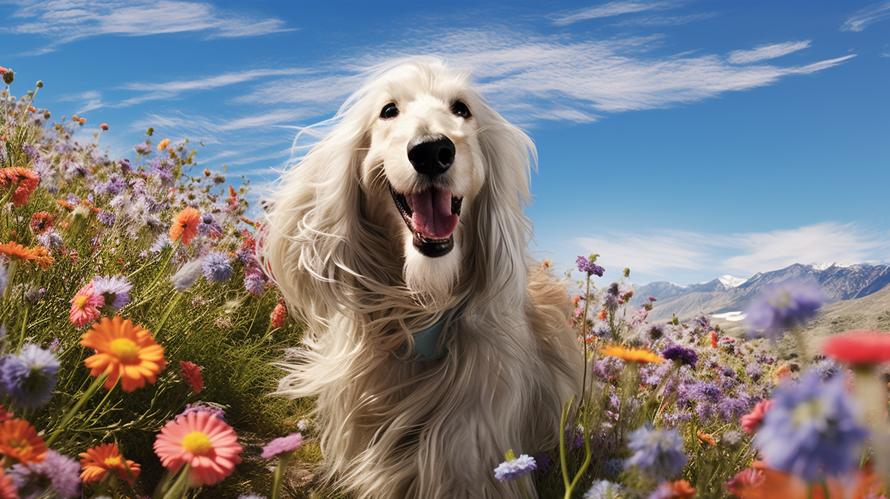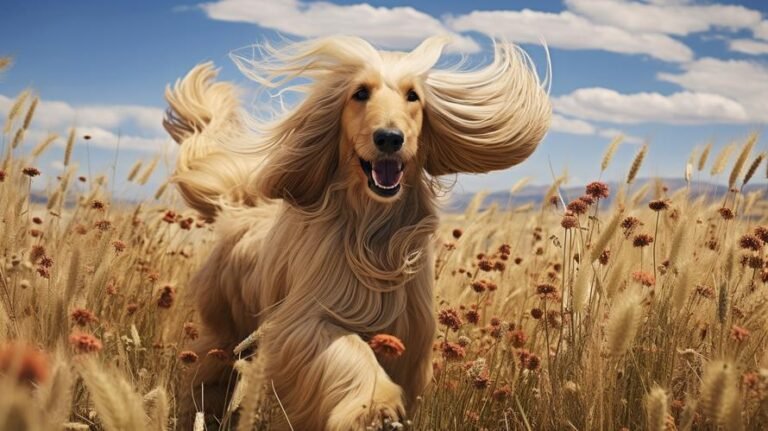Did you know that the Afghan Hound is one of the oldest dog breeds in the world, dating back thousands of years? These elegant creatures are a sight to behold with their silky, flowing coats, finely chiseled features, and a regal air. Born and bred in the rough terrains of Afghanistan, these dogs were used for hunting fast prey in deserts and mountains, requiring a powerful build and a special kind of diet. So, the question arises-“Should an Afghan Hound eat grain-free?”
Before we delve into this question, let’s take a brief trip back to ancient times where these magnificent hounds originated. These dogs hunted gazelles, deer, and even leopards in the Afghan mountains and valleys. Given the nature of their early survival and hunting habits, their diet was primarily carnivorous. They consumed raw meat and sometimes fruits and vegetables. Grains or processed food did not form a part of their diet, largely because these were not readily available.
Transitioning into the present-day, Afghan Hounds are now more likely to be found in our homes as domestic pets instead of the mountainous terrain of Afghanistan. However, their biological setup and genetic composition continue to hold traces of their old carnivorous diet. For this reason, it may be thought that grain-free diets would be more suitable for Afghan Hounds. However, the answer isn’t that straightforward and requires a nuanced reflection.
Why? Because the answer to this depends significantly on the individual dog. Rather than stick to a one-size-fits-all approach, a diet should be opted which suits your dog the best. So how do you decide whether or not your Afghan Hound should have a grain-free diet?
Firstly, it’s important to understand the reasons why a pet owner might choose grain-free food. Grain-free food is often marketed as being closer to a dog’s natural diet because it contains more protein and fewer carbs than other commercial dog foods. Many grain-free products replace grains with other carbohydrate sources like potatoes, legumes, and peas.
Now, while it might seem logical to replicate the diet of their ancestors, it’s crucial to remember that domestic dogs have evolved alongside humans for over 10,000 years. This long association has led to certain physical changes, including the ability to digest grains. Unlike wolves, domestic dogs have genes that allow the production of amylase, an enzyme that helps digest carbohydrates. As a result, despite their carnivorous ancestry, most dogs can digest grains quite efficiently.
However, reasons to consider a grain-free diet may arise if your Afghan Hound develops food allergies or sensitivities. Symptoms may include frequent scratching, ear infections, hair loss, skin infections, diarrhea, and vomiting. In such cases, grains like wheat, corn, soy, and others could potentially be the culprits. It is advisable to consult with your vet to find the root cause of the allergies or sensitivities. They may propose a diet change or an elimination diet to identify the specific foods triggering these responses.
It’s important to note that a grain-free diet should not be confused with a low-carb or no-carb diet. Grains are a source of carbohydrates, yes, but grain-free dog food still contains other carb sources, like potatoes and peas.
While all this is helpful information, the most significant piece of advice to pet parents considering a grain-free diet is to consult a veterinary nutritionist or their vet. They can provide a comprehensive nutritional assessment based on the individual health and life stage of your Afghan Hound.
In 2018, the FDA issued a warning about a potential link between grain-free diets and a type of heart disease called dilated cardiomyopathy (DCM) in dogs. While this link is still under investigation and has not been conclusively proven, it’s always safer to consult a professional before making significant changes in your dog’s diet.
In conclusion, should an Afghan Hound eat grain-free? It depends. Grain-free isn’t inherently bad or good. If your hound has food allergies or sensitivities with grains being the identified cause, grain-free could be the way to go. Still, it’s not necessary or beneficial for all Afghan Hounds. The best way forward is to get reliable advice from a vet or a certified pet nutritionist who knows your dog’s dietary needs in-depth.
Remember, these majestic dogs, with their dignified air and flowing coats, are not just a beauty to behold but also a responsibility to nurture. Their diet plays an essential role in their overall health and well-being. Taking the time to understand what suits them best will indeed ensure they remain the healthy, happy, aristocratic dogs they were meant to be.



